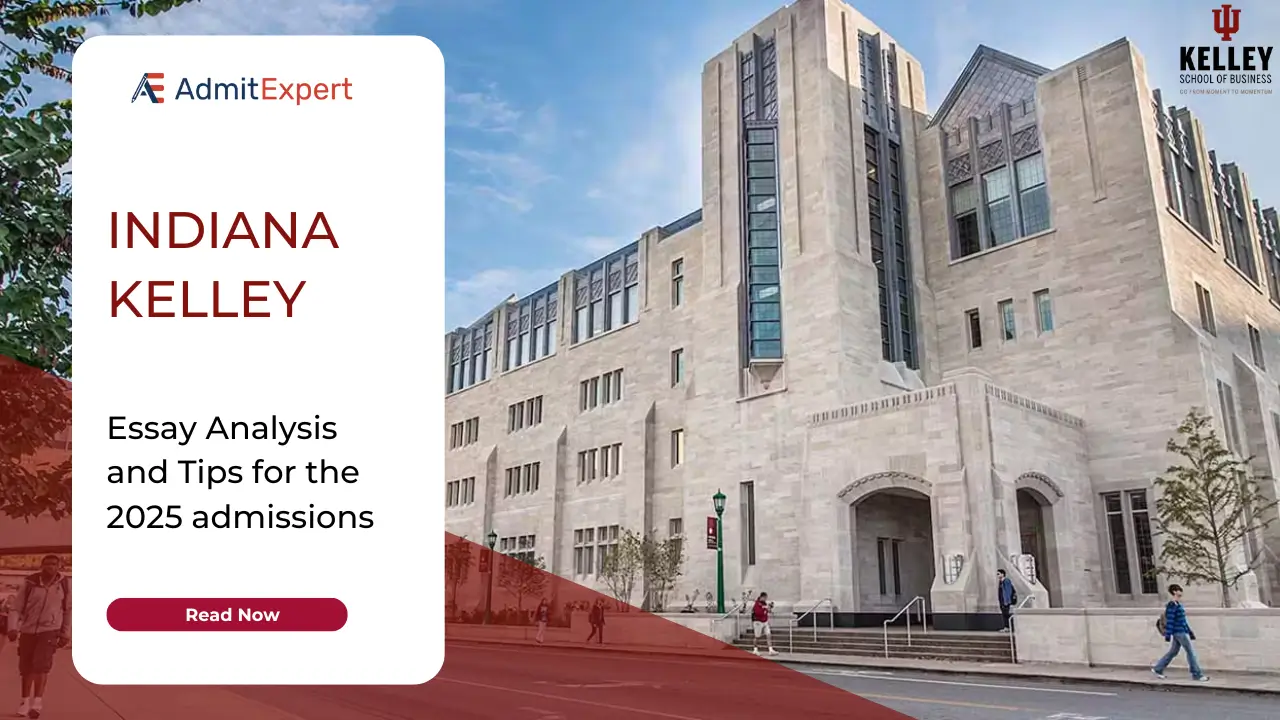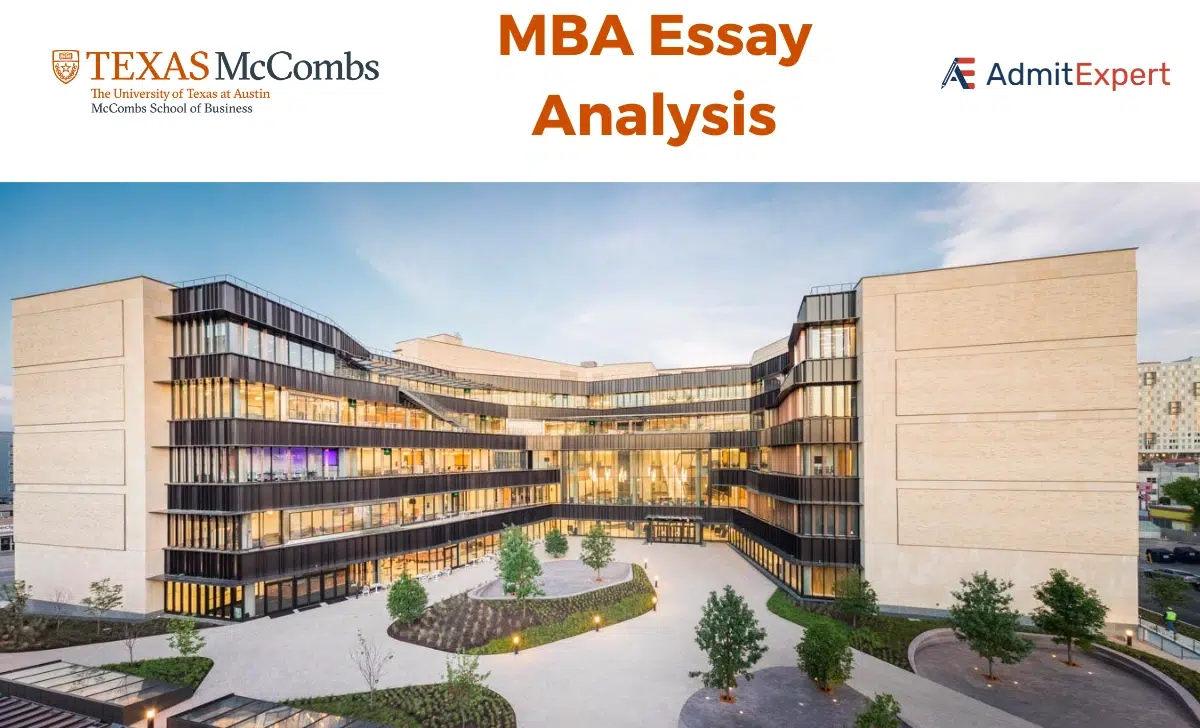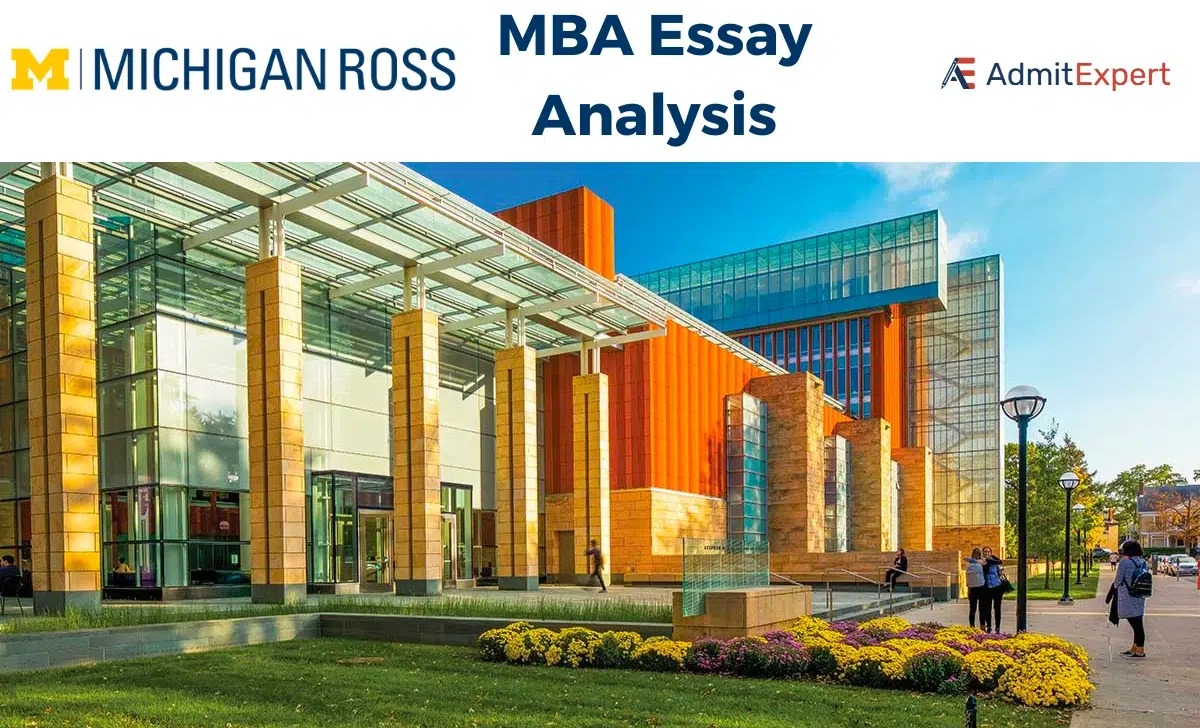The Indiana Kelley MBA program is renowned for its focus on experiential learning and leadership development, attracting candidates with diverse backgrounds and ambitions. For the 2025 admissions, the essay prompts give applicants a chance to showcase their professional goals, personal reflections, and unique qualities. Crafting standout essays is crucial for success, and this article provides an in-depth analysis, expert tips, and a winning framework for approaching each of the 2025 essay prompts. Whether you’re outlining your post-MBA career plans or sharing a defining moment, this guide will help you craft essays that resonate with the admissions committee.

Essay Prompts
- Discuss your immediate post-MBA professional goals. How will your professional experience, when
combined with a Kelley MBA degree, allow you to achieve these goals? Should the short-term goals you have
identified not materialize, what alternate career paths might you consider? (500 words) - Respond to one of the following short essay prompts. (300 words)
a. My greatest memory is…
b. I’m most afraid of…
c. My greatest challenge has been…
d. I’m most proud of… - Share a brief fact about yourself that your classmates would find interesting, surprising, or noteworthy. (25 words)
- (Optional) Is there anything else that you think we should know as we evaluate your application? If you believe your credentials and essays represent you fairly, you shouldn’t feel obligated to answer this question. (300 words)
Kelley MBA Essay 1
What the Admissions Committee Seeks
Indiana Kelley’s 2025 MBA essay prompt focuses on your immediate post-MBA goals and the practical steps you’ll take to achieve them. Kelley’s admissions committee is looking for applicants with a clear vision of their career trajectory, realistic short-term goals, and a solid understanding of how the Kelley MBA can facilitate this path.
- Clear Post-MBA Goals: The admissions committee expects you to define specific career objectives. A vague goal such as “taking on a leadership role” will not suffice. Instead, Kelley seeks candidates who have researched their post-MBA industry and have a clear plan. Your essay should include not only the job title and function you aspire to but also the industry and, ideally, the companies you are targeting. Furthermore, it’s beneficial if these companies are among Kelley’s recruiting partners, which shows you’ve researched their placement track record.
- Alignment of Professional Experience: Kelley is interested in how your professional background has shaped your career aspirations. They want to see a clear progression from your pre-MBA experiences to your future ambitions. Detailing how your work history has equipped you with certain skills, while highlighting the gaps that an MBA would fill, demonstrates to the committee that you have a strategic approach to your career development.
- Realistic Backup Plan: Kelley’s essay prompt stands out by asking for a “Plan B” in case your primary goal doesn’t materialize. The admissions committee is not only assessing your ambition but also your adaptability and pragmatism. They expect you to have thought through potential challenges and mapped out alternative career paths. However, these alternate paths should be related to your primary goal and not a drastic career pivot. A well-thought-out Plan B shows foresight and flexibility—key traits in future business leaders.
- Kelley’s Unique Value: Finally, the committee is keen to understand why Kelley specifically is your top choice for pursuing an MBA. They will be evaluating how well you’ve researched the program and whether you understand how Kelley’s resources—its curriculum, experiential learning opportunities, and student organizations—will support your professional growth. This is an opportunity to showcase how you will contribute to the Kelley community and benefit from its unique offerings.
How to Write the Essay
- Start with Your Post-MBA Goals: Begin by clearly stating the role, industry, and company you are targeting post-MBA. For example, if you are pursuing a career in management consulting, specify a role such as “Consultant” or “Associate” and identify the firms you aspire to work for—such as McKinsey, Bain, or Deloitte, which recruit at Kelley. Be specific about why this position is important for your long-term career goals, which may be reaching a partner level at a consulting firm or transitioning into an executive role within a particular industry.
- Connect Your Professional Experience: After outlining your goals, connect the dots between your career so far and your future ambitions. Explain how your previous roles have prepared you for the job you wish to secure after your MBA. Be detailed about the skills you’ve acquired—whether that’s managing teams, solving complex problems, or working in fast-paced environments—and identify the knowledge gaps that an MBA will help you address. If you’ve worked in a related field or gained experience that informs your career choice, this is the section where you can highlight those experiences.
- Why Kelley MBA?: This section is crucial. You need to demonstrate that Kelley is the right place for you to bridge the gap between your current skill set and your career goals. Research Kelley’s program in-depth, identifying courses, experiential learning opportunities, and student organizations that align with your goals. For example, Kelley’s Business Marketing Academy or its experiential learning programs like “Kelley on Location” could be instrumental in your career path. Discuss how these elements will equip you with the tools to succeed in your desired role.Additionally, mention how you plan to contribute to the Kelley community. Are you interested in leading a student organization? Do you have ideas for events or initiatives that align with your expertise? Showing your willingness to contribute to Kelley’s culture will make your essay stand out.
- Alternative Career Path: The final part of the essay asks for a contingency plan. If your first choice doesn’t work out, what is your Plan B? This plan should align closely with your primary goal. For instance, if your primary goal is to work in venture capital, you might consider a secondary goal in private equity or strategy consulting. Avoid making a drastic pivot in your alternate plan, as this could signal to the admissions committee that you haven’t thought through your career aspirations carefully. A well-aligned backup plan shows that you are adaptable and prepared for the challenges of a dynamic job market.
- Wrap Up with a Strong Conclusion: Your essay should end by reinforcing the link between your short-term goals and the Kelley MBA, reiterating how you will benefit from the program and how the school aligns with your career aspirations. If possible, include a brief mention of your long-term goals as a way to frame your entire essay. Finally, restate your commitment to contributing to the Kelley community, showing that you are both an ambitious professional and a team player who will enhance the experiences of your fellow students.
Essay 2
Respond to one of the following short essay prompts. (300 words)
a. My greatest memory is…
b. I’m most afraid of…
c. My greatest challenge has been…
d. I’m most proud of…
What Admissions Committee Seeks
The admissions committee at the Kelley School of Business, Indiana University, is focused on understanding the unique qualities, experiences, and aspirations of each applicant. By asking candidates to respond to one of the short essay prompts, they aim to gain insights into the applicant’s personal values, resilience, and self-awareness. The prompts—My greatest memory is…, I’m most afraid of…, My greatest challenge has been…, and I’m most proud of…—allow candidates to showcase pivotal moments or emotions that have shaped their identities.Key Attributes Sought by the Committee:
- Authenticity: The committee values genuine stories that reflect the applicant’s true self. Authenticity helps them assess how well the candidate’s experiences align with the values of the Kelley community.
- Self-Reflection: Candidates are encouraged to demonstrate introspection. The admissions team looks for individuals who can critically evaluate their past experiences and articulate how these moments have influenced their personal and professional growth.
- Character and Values: Through the chosen prompt, applicants have the opportunity to reveal their core values and character traits. Whether discussing pride in an achievement or fear of failure, the committee seeks to understand what drives the candidate.
- Fit with Kelley: The committee is interested in how well candidates will integrate into the Kelley community. They look for evidence of collaboration, leadership potential, and a commitment to personal and professional development.
In summary, the admissions committee is not just looking for a recounting of events but rather a narrative that illustrates the applicant’s journey, highlighting how their experiences have prepared them for the challenges and opportunities of an MBA program.
How to Write These Essays
Writing compelling essays for the Kelley MBA application involves careful consideration of the chosen prompt and a structured approach to storytelling. Here are some strategies to effectively respond to the short essay prompts.
1. Choose the Right Prompt: Selecting the prompt that resonates most with your experiences is crucial. Reflect on which topic allows you to share a meaningful story that showcases your character and aligns with the values of Kelley.
2. Structure Your Response:
- Introduction: Start with a hook that captures the reader’s attention. Briefly introduce the memory, fear, challenge, or source of pride you will discuss.
- Body:
- For “My greatest memory is…”: Describe the memory vividly, including sensory details that transport the reader. Explain why this memory is significant and what it reveals about you.
- For “I’m most afraid of…”: Discuss your fear candidly. Explain its origins and how it has impacted your life. Highlight any actions you have taken to confront or manage this fear.
- For “My greatest challenge has been…”: Outline the challenge clearly, focusing on the obstacles faced and the steps taken to overcome them. Emphasize the lessons learned and personal growth achieved.
- For “I’m most proud of…”: Share an achievement that reflects your values and aspirations. Discuss the effort involved and the impact of this achievement on your life and those around you.
- Conclusion: Tie your story back to your aspirations and how it connects to your goals at Kelley. This could involve discussing how the experience has prepared you for the challenges of an MBA program or how it aligns with your future career objectives.
3. Be Authentic and Reflective:Authenticity is key. Write in your voice and be honest about your experiences. The admissions committee values sincerity over embellishment. Reflect on what your story reveals about your character and how it aligns with Kelley’s collaborative and innovative culture.
4. Edit and Revise:After drafting your essay, take the time to revise for clarity, coherence, and conciseness. Ensure that every word contributes meaningfully to your narrative. Seek feedback from trusted peers or mentors to gain different perspectives and improve your essay further.
5. Adhere to Word Limits:With a limit of 300 words, every sentence must serve a purpose. Be strategic in your word choice and avoid unnecessary filler.
Essay 3
Share a brief fact about yourself that your classmates would find interesting, surprising, or noteworthy. (25 words)
What the Admissions Committee Seeks
In this prompt, the admissions committee is looking for a glimpse into your individuality. They want to understand what makes you unique beyond your academic and professional qualifications. This is an opportunity to showcase a personal trait, experience, or interest that could serve as a conversation starter among peers. The aim is to assess your ability to present yourself succinctly and engagingly, reflecting your personality and how you might contribute to the Kelley community.
How to Write This Essay
To craft a compelling response to this prompt, consider the following steps:
- Brainstorm Unique Aspects: Reflect on your life experiences, hobbies, or achievements that set you apart. Think about what you are passionate about or any unusual experiences that could intrigue others.
- Be Concise and Specific: With only 25 words, every word counts. Aim for clarity and impact. For example, instead of saying, “I love hiking,” you could say, “I’ve hiked all 48 of New Hampshire’s 4,000-foot peaks.”
- Create a Hook: Start with a captivating fact that piques interest. This could be a surprising achievement, a unique skill, or an unusual hobby.
- Stay Authentic: Ensure that the fact you choose genuinely reflects who you are. Authenticity resonates more than trying to impress with something that doesn’t truly represent you.
Essay 4 (Optional)
Is there anything else that you think we should know as we evaluate your application? (300 words)
What the Admissions Committee Seeks
This optional prompt allows candidates to provide additional context about their application. The admissions committee is looking for insights that may not be covered in other parts of the application, such as your resume or essays. This could include explanations for gaps in employment, challenges you’ve overcome, or additional accomplishments that demonstrate your suitability for the program. It’s a chance to reinforce your narrative and clarify any potential concerns the committee might have.
How to Write This Essay
To effectively respond to this optional prompt, consider the following guidelines:
- Identify Key Points to Address: Think about aspects of your application that may need clarification or additional context. This could include a lower GPA, a career transition, or personal challenges.
- Focus on Growth and Learning: If discussing challenges, emphasize what you learned from the experience and how it has prepared you for the MBA journey. This demonstrates resilience and a growth mindset.
- Highlight Additional Strengths: Use this space to showcase achievements or experiences that further illustrate your qualifications or fit for the Kelley program. This could include leadership roles, community service, or unique projects.
- Be Concise and Relevant: Stick to the 300-word limit and ensure that your response remains focused and relevant. Avoid repeating information already provided in your application.
- Proofread and Revise: After drafting your response, take the time to review and revise. Ensure clarity, coherence, and grammatical accuracy, as a polished essay reflects your attention to detail.
Final Thoughts
The Indiana Kelley MBA essays provide a platform to present not just your professional goals but also the personal values and experiences that shape your leadership style. By strategically aligning your goals with Kelley’s offerings and delivering authentic, well-structured responses, you can present a compelling application. Whether addressing your post-MBA career objectives or sharing a memorable moment, these essays are your opportunity to stand out in a competitive pool. Thoughtful preparation and in-depth research into the Kelley program will put you on the path to a successful MBA application.




